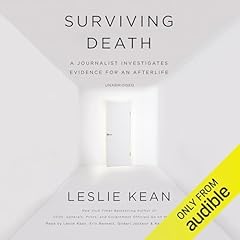
The Eerie Silence
Renewing Our Search for Alien Intelligence
Failed to add items
Add to Cart failed.
Add to Wish List failed.
Remove from wishlist failed.
Adding to library failed
Follow podcast failed
Unfollow podcast failed
Get 3 months for $0.99/mo
 Prime members: New to Audible? Get 2 free audiobooks during trial.
Prime members: New to Audible? Get 2 free audiobooks during trial.
Buy for $21.24
-
Narrated by:
-
George K. Wilson
-
By:
-
Paul Davies
Fifty years ago, a young astronomer named Frank Drake pointed a radio telescope at nearby stars in the hope of picking up a signal from an alien civilization. Thus began one of the boldest scientific projects in history, the Search for Extraterrestrial Intelligence (SETI). But after a half century of scanning the skies, astronomers have little to report but an eerie silence---eerie because many scientists are convinced that the universe is teeming with life. The problem, argues leading physicist and astrobiologist Paul Davies, is that we've been looking in the wrong place, at the wrong time, and in the wrong way. Davies should know. For more than three decades, he has been closely involved with SETI and now chairs the SETI Post-Detection Taskgroup, charged with deciding what to do if we're confronted with evidence of alien intelligence. In this extraordinary book, he shows how SETI has lost its edge, then offers a new and exciting road map for the future.
Davies believes that our search so far has been overly anthropocentric: we tend to assume an alien species will look, think, and behave like us. He argues that we need to be far more expansive in our efforts, and in this book he completely redefines the search, challenging existing ideas of what form an alien intelligence might take, how it might try to communicate with us, and how we should respond if we ever do make contact. A provocative and mind-expanding journey, The Eerie Silence will thrill fans of science and science fiction alike.
©2010 Paul Davies (P)2010 TantorListeners also enjoyed...




















Critic reviews
People who viewed this also viewed...





An in-depth exploration of a fascinating topic
Something went wrong. Please try again in a few minutes.
Love it!
Something went wrong. Please try again in a few minutes.
Excellent
Something went wrong. Please try again in a few minutes.
Author Davies resets the business of seeking alien life forms on a foundation of sound science. He proposes that the "alien" life form we are most likely to discover is at the bottom of the ocean, or deep inside the earth. The odds of contacting intelligent life through projects such as SETI are so remote, why not look for life forms on this planet that may be traveling along unique evolutionary paths.
As much as I was inspired by Carl Sagan's Cosmos, I am persuaded that science has not exhausted the search for the origins, nature and prevalence of life right here in our own backyard.
Carl Sagan, phone home
Something went wrong. Please try again in a few minutes.
Would you recommend this book to a friend? Why or why not?
I would recommend the book only to someone who either is absolutely fascinated with the concept of alien intelligence or who simply devours outer-space-related science fiction. I am truly confident this book is the definitive "retail" description of the state-of-the-art search for such intelligence. I can't imagine any more informed author than Paul Davies. It is a virtually encylopedic enumeration of what we've discovered thus far (i.e., nothing much) and of the many possible ways we humans could discover alien beings going forward, whether they are intelligent or not. However, such an enumeration--in my opinion--got to be tedious after the first few chapters. On the positive side, the reader will encounter some interesting new scientific developments and increase his understanding of the gargantuan hurdles scientists face in the detection of alien intelligence.How would you have changed the story to make it more enjoyable?
Make it a little less speculative about all possible technologies that aliens might employ to find us or that we might use to find them. It got to be a catalog of scientific frontier knowledge that conceivably could be exploited like creating monopole magnets, or using nanotechnology to create tiny data-encoded vonNeumann computers which could be distributed around the universe in millions and powered by dark energy, etc. etc.What do you think the narrator could have done better?
The narrator was OK. I'm satisfied.Did The Eerie Silence inspire you to do anything?
No.It seemed like a rather long 10 hours
Something went wrong. Please try again in a few minutes.


